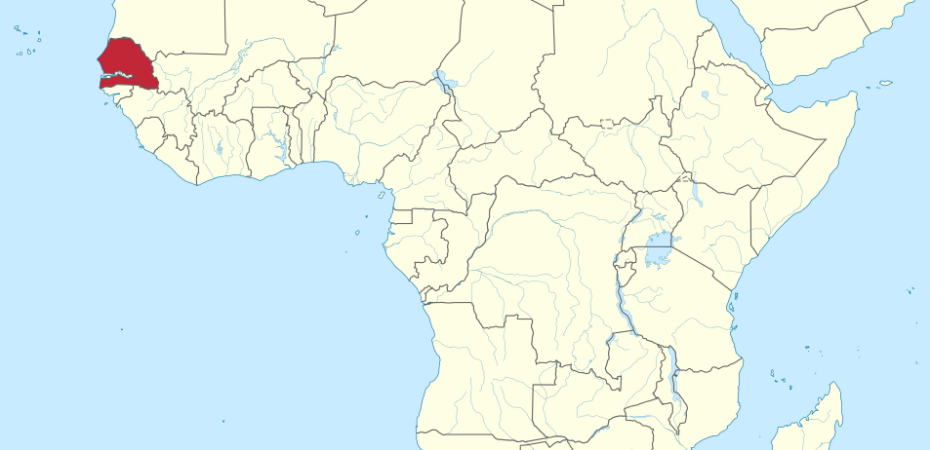From prison to president: stunning opposition win in Senegal’s election

The result of last Sunday’s election offers a prospect of real change for the west African country, argues Mike Phipps.
“Senegal’s anti-establishment candidate looks almost certain to become president after a stunning election victory that is likely to steer the west African country in a radical new direction,” reports the Guardian.
“A little over a week after his release from prison, Bassirou Diomaye Faye is almost certain to be declared the country’s next president after his main rival unexpectedly called him to concede defeat.”
Faye’s outright victory, with 55% of the vote, constitutes a clear rejection of Macky Sall, the incumbent president whose twelve years in office saw spiralling poverty and unemployment, as well as increasing repression and attacks on civil liberties.
The election result is a triumph for democracy in a region where there have been eight military coups since 2020. Yet Senegal’s election almost didn’t happen: Sall sought to postpone it in February and was forced backtrack only after massive opposition on the streets.
So who is Faye? Senegal’s youngest ever president is an anti-corruption candidate. He was released from prison only this month along with his mentor Ousmane Sonko, who was disqualified from standing in the election because of a defamation conviction. Both are former tax inspectors. Faye spent more than 11 months in prison for a Facebook post that the regime deemed subversive.
Ahead of Sunday’s election, Faye published a declaration of his assets, and called on other candidates to do the same. It lists a home in Dakar, and land outside the capital and in his hometown. His bank accounts hold roughly $6,600.
A victory for Faye is a good sign for democracy in Senegal, according to Alioune Tine, founder of the think tank Afrikajom Center and Amnesty International’s former regional director for West and Central Africa. “Democracy was sick with political violence, with state violence, with death,” he told Al Jazeera, adding that Sonko being barred from contesting the election further showed that democracy was in an unhealthy state.
Faye had to fight the election as an independent after the dissolution of his Patriots of Senegal (PASTEF) party last July for supposedly causing unrest. The PASTEF party, which was founded by Sonko in 2014, endorsed Faye. It won a third of the parliamentary seats in the 2022 National Assembly election after forming an alliance with four other parties.
Faye is a left wing pan-Africanist who has campaigned for a fundamental reshaping of Senegal’s relationship with its former colonial power, France, which he says exercises an “economic stranglehold” on Senegal. He wants Senegal to cease using the African Financial Community (CFA) franc—a unit of currency that was pegged to the French franc, and now to the euro.
The principle behind the arrangement is simple: to give France economic control over African states, which it exercises by use of currency devaluation, which can have a disastrous effect on local economies. Macron is an enthusiastic supporter of this colonial relic.
“Convinced that full independence cannot be achieved without controlling the economy, livestock management, fisheries and agriculture, we are fully committed to achieving food, digital, fiscal, energy and scientific sovereignty,” Faye says in an introduction to his election manifesto.
Faye has also promised to renegotiate mining and gas contracts sighed with foreign countries. Along with other African leaders, he is highly critical of these contracts, which guarantee the mining of minerals that will help European countries achieve their transition to cleaner energy. Many of them replicate the same colonial practices seen in the era of fossil fuel extractivism – low royalties, few environmental safeguards, undermining traditional ways of life for small farmers and herders. The issue is assuming increasing importance for countries rich in these new resources.
France continues to keep a contingent of troops in Senegal, as it does with other former colonies in the region. As elsewhere, younger Senegalese want to see an end to this.
Faye has also pledged to reduce presidential powers, make the judiciary more independent and reform land ownership. The earlier jailing of Faye and Sonko underlined the concern shared by many that the judiciary has been politically manipulated to harass the outgoing president’s opponents.
Faye appeals to younger voters – 60 percent of the population is under 25 – who are in the forefront of the demands for change. Unemployment is 20 percent and poverty stands at 40 percent. Young Senegalese had grown bitterly hostile to the outgoing regime which last year authorised police to fire on protesters with live rounds, causing two dozen fatalities and injuring hundreds. Macky Sall’s attacks on democracy also included shutting down the country’s prestigious University Cheikh Anta Diop and cracking down on journalists.
In avoiding the military coups that have hit so much of the region, Senegal has come to be seen as a model of democracy in west Africa. This election offers an opportunity to add some meaningful content to that image.
Mike Phipps’ book Don’t Stop Thinking About Tomorrow: The Labour Party after Jeremy Corbyn (OR Books, 2022) can be ordered here.
No comments:
Post a Comment